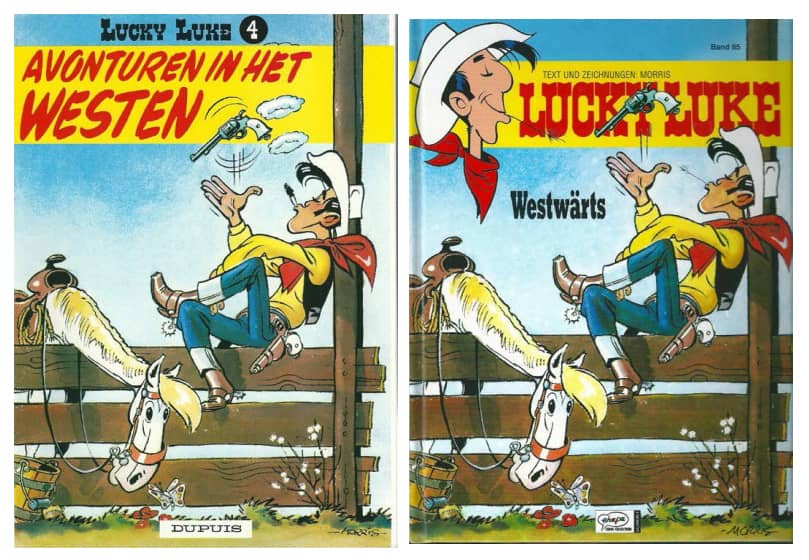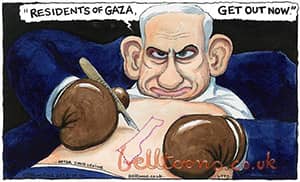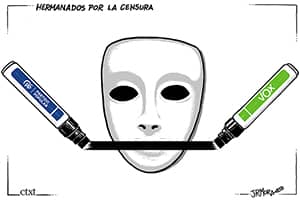
Lucky Luke "lost" his cigar
Censorship and comics
It is not only journalists who are sometimes hindered or threatened when trying to do their job. Cartoonists and comic artists have also always been on the front line when it comes to exercising freedom of expression. Author and comics expert Jan Smet has recently published "Duizend bommen en castraten" on this topic. The book examines with examples how, over the years, the censors have been raging against comics.
Lucky Luke is no longer allowed to smoke and The Marsupilami was accused of putting bad ideas into children's heads, to give just a couple of examples. The pedagogical exhibition takes a visual tour through a century of these tensions. Cartoonists and storytellers on the one hand, and publishers, editors, religious leaders and politicians on the other.
This is how the exhibition "Blistering barnacles and castrates, censorship and comics", which can be visited until 21 May in the Bozar Hall in Brussels, is described.
For Karl Van den Broeck, coordinator of the exhibition, the times when kings, dictators and presidents exerted pressure are long gone in Western democracies, but new censors have appeared and he cites what he believes to be one of the most illustrative examples, the controversy over one of the first works of Tintin, included in the exhibition, in which the popular character travelled to a Congo in the 1930s and in which the stereotypes and racism intrinsic to the society of the time are palpable.
Hergé admitted years later that he was influenced by the prejudices of the "bourgeois environment" of the time when he conceived the comic; however, this was not enough for the case to reach the British Commission for Racial Equality in 2007. Years later, a court ruled that the comic was not racist, but the controversy continues to this day, according to one of the pieces in the Tintin exhibition.
"By publishing it now, you are not committing a racist act, but you have to explain it. So now these comics are being reprinted with an explanation at the beginning," says Van den Broeck.
"I think that when works or cartoons incite violence or discrimination, censorship is not a bad thing. You can start a discussion, which is the best thing, because what scares me (...) is that someone in authority says 'this has to be censored'". Source.
The exhibition launches a final question to the visitor: is some censorship justified in order to protect social minorities?







